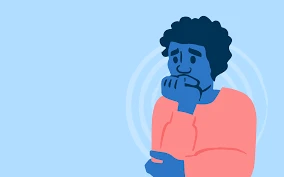
Advertisement
Many older people wake up at night because the aging process has changed their sleep patterns. Older people usually sleep more deeply for fewer hours and are more aware of their bodies. Long-term illnesses, bedwetting, and anxiety can also keep them up at night. Long-term insomnia increases the risk of traffic accidents and depression.
Restless Foot Syndrome

If you are an older adult, you may experience restless leg syndrome (RLS). If you have restless legs, you may not be able to sleep well. RLS affects about 35% of older adults. It may be irritating, but you can improve your sleep and reduce the effects.
There are problems with the nervous system that cause restless leg syndrome, which can lead to an uncontrollable urge to move your legs. Researchers believe that restless leg syndrome is caused by brain cells using dopamine, which is a neurotransmitter that helps muscles move. It affects both genders, but women are more likely to experience the condition.
Prescription medications

Many Americans have trouble sleeping, and millions turn to non-prescription and prescription sleep medications for help. People over 65 are most likely to use OTC sleep medications, which can have serious side effects. One-third of adults over 65 use them at least occasionally.
Lifestyle changes related to aging contribute to insomnia in older adults. Many retirees work fewer hours and have less structured sleep schedules. Social isolation and loss of independence also increase stress levels. These factors also lead to sleep problems. Some prescription medications can also affect day-night rhythms.
Depression

Depression is much more prevalent among the elderly than many realize. More than 2 million elderly suffer from depression every year. It is a serious mental illness that requires proper treatment. It can cause more serious problems than those related to aging, so you need to recognize these signs and understand the causes of prevention.
The first treatment is medication, which is usually prescribed by a doctor to treat the chemical imbalance of geriatric depression. Elderly people are more sensitive to the side effects of these medications, so they must be closely monitored. Also, these medications can interact with other medications. Apart from that, some elderly people suffer from memory decline, which can lead to missing a dose or taking too many medications.
Improved sleep quality
training

Besides improving sleep quality and lowering the risk of insomnia, exercise can help the body conserve energy. Studies of adults with chronic insomnia have shown that acute aerobic exercise can reduce anxiety and promote sleep. However, more research is needed to test whether it has a similar effect on older people with sleep disorders. Regular aerobic exercise
also improves sleep quality. Regular aerobic exercise increases the body's core temperature, leading to deeper, more restful sleep. In addition to keeping you alert and relaxed, moderate aerobic exercise can reduce stress and lower cardiovascular risk. It is also beneficial to exercise two hours before going to bed.









